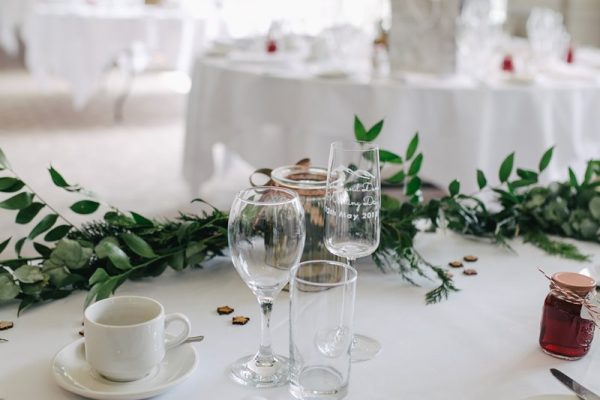The Services of a Wedding Planner and Their Importance in Today’s Time
Wedding Planners
Our Services
“Expert wedding planners providing bespoke services: venue selection, vendor management, catering, decor, and logistics. Personalized attention, stress-free experience, and unforgettable celebrations. Let us craft your dream wedding, tailored to your unique love story and vision.”


In recent years, weddings have transformed from simple ceremonies into grand, personalized events, often involving intricate planning and meticulous attention to detail. This shift has highlighted the significance of wedding planners, whose expertise ensures that every aspect of the big day runs seamlessly. Below, we delve into the range of services offered by wedding planners its importance of wedding planner and explore why they are invaluable in today’s fast-paced and highly demanding world. Additionally, we address frequently asked questions to provide a comprehensive understanding of their role.
1. Understanding the Role of a Wedding Planner
A wedding planner is a professional who specializes in organizing and managing every detail of a wedding. Their primary responsibility is to ensure that the event runs smoothly, aligns with the couple’s vision, and stays within budget.
Key tasks include:
Budget management: Helping couples allocate funds effectively to prioritize the most critical aspects of their wedding.
Vendor coordination: Sourcing and liaising with florists, caterers, photographers, and other vendors.
Timeline creation: Ensuring all aspects of the event follow a well-structured schedule.
Problem-solving: Addressing last-minute hiccups to prevent disruptions on the big day.
2. Services Offered by Wedding Planners
Wedding planners provide a wide range of services to cater to diverse client needs. These include:
2.1 Full-Service Wedding Planning
This comprehensive package includes end-to-end management of the wedding. The planner takes care of everything from the initial consultation to post-event follow-ups. It’s ideal for couples who have busy schedules or desire a stress-free experience.
2.2 Partial Wedding Planning
For couples who have already made some arrangements but need assistance with specific aspects, partial planning is a great option. This service focuses on tasks like vendor coordination, design elements, or event-day management.
2.3 Day-of Coordination
This service ensures everything goes as planned on the wedding day. The planner oversees logistics, manages vendors, and addresses any issues that arise, allowing the couple to fully enjoy their special day.
2.4 Destination Wedding Planning
Destination weddings require additional expertise due to travel logistics, legal formalities, and unfamiliarity with the location. Wedding planners specializing in destination events handle these complexities seamlessly.
3. The Importance of Wedding Planners in Modern Times
In today’s fast-paced world, wedding planners play a crucial role for several reasons:
3.1 Time-Saving Benefits
Planning a wedding can take months of preparation, requiring extensive research and coordination. Wedding planners save couples time by handling these tasks efficiently.
3.2 Stress Reduction
Managing multiple vendors, guest lists, and unforeseen challenges can be overwhelming. Wedding planners reduce stress by managing these responsibilities professionally.
3.3 Cost Efficiency
Experienced wedding planners have strong relationships with vendors, often securing discounts and ensuring the best value for money. They also prevent costly mistakes through careful planning.
3.4 Personalized Experiences
Wedding planners work closely with couples to create a wedding that reflects their personalities and preferences. From themes to décor, they ensure every detail aligns with the couple’s vision
4. Trends in Wedding Planning
Modern wedding planners adapt to changing trends and incorporate innovative ideas into their services. Some current trends include:
4.1 Sustainable Weddings
Couples are increasingly opting for eco-friendly options like biodegradable decorations, locally-sourced food, and minimal waste practices.
4.2 Tech-Integrated Weddings
From digital invitations to live-streaming ceremonies, technology is revolutionizing the wedding industry. Wedding planners facilitate these advancements for tech-savvy couples.
4.3 Micro Weddings
Intimate celebrations with fewer guests are gaining popularity. Wedding planners excel in creating meaningful experiences for small gatherings.
4.4 Experiential Elements
Unique experiences like interactive food stations, live entertainment, and personalized guest favors are becoming staples in modern weddings.
5. The Financial Aspect of Hiring a Wedding Planner
5.1 Cost Breakdown
Wedding planner fees vary based on factors such as the scope of services, wedding size, and location. Common pricing models include flat fees, percentage-based fees, and hourly rates.
5.2 Budget Optimization
While hiring a wedding planner is an additional expense, they often save couples money by avoiding costly errors and negotiating vendor discounts.
6. How to Choose the Right Wedding Planner
Selecting the perfect wedding planner involves careful consideration:
6.1 Experience and Portfolio
Review the planner’s portfolio to assess their style and expertise. Look for experience in handling weddings of similar scale and complexity.
6.2 Communication Skills
A good wedding planner listens to the couple’s needs and maintains clear communication throughout the process.
6.3 References and Reviews
Check testimonials from previous clients to gauge the planner’s reliability and professionalism.
6.4 Compatibility
The planner’s personality and approach should align with the couple’s preferences to ensure a smooth working relationship.

Planning a wedding can be a daunting task, especially for couples who have never organized a large event before. With so many details to consider, from venue selection to vendor management, catering, decor, and logistics, it’s easy to feel overwhelmed. This is where a wedding planner comes in – a professional who specializes in coordinating and executing weddings. In this article, we’ll explore the services of a wedding planner and their importance in today’s time.
A wedding planner provides a wide range of services to ensure that the couple’s special day is nothing short of perfection. These services include venue selection, where the planner helps the couple find the ideal location for their wedding; vendor management, where the planner coordinates with vendors such as caterers, photographers, and florists; catering, where the planner helps the couple choose a menu that suits their taste and budget; decor, where the planner assists with designing and setting up the wedding decor; and logistics, where the planner ensures that everything runs smoothly on the wedding day. By providing these services, a wedding planner takes a significant burden off the couple’s shoulders, allowing them to focus on enjoying their special day.
The importance of hiring a wedding planner cannot be overstated. With their expertise and experience, wedding planners can help couples save time, reduce stress, and stay within their budget. They can also provide valuable advice and guidance, helping couples make informed decisions about their wedding. Furthermore, wedding planners have established relationships with vendors, which can result in better prices and services. In today’s time, where couples are increasingly busy with work and other commitments, hiring a wedding planner is more important than ever. By outsourcing the planning and coordination of their wedding, couples can free up time and energy to focus on what really matters – their love and commitment to each other.
In addition to the services mentioned earlier, many wedding planners also offer bespoke services tailored to the couple’s unique needs and preferences. These services may include wedding theme development, wedding attire coordination, wedding transportation arrangement, and wedding accommodation booking. By providing these bespoke services, wedding planners can help couples create a truly personalized and unforgettable wedding experience. Whether you’re planning an intimate gathering or a grand celebration, a wedding planner can help you bring your vision to life. With their expertise, experience, and attention to detail, wedding planners are essential in today’s time, providing couples with peace of mind, stress-free planning, and unforgettable memories.
Keywords used in the following paragraphs:
Paragraph 1: “venue selection”, “vendor management”, “catering”, “decor”, and “logistics”
A wedding planner provides a wide range of services to ensure that the couple’s special day is nothing short of perfection. These services include venue selection, where the planner helps the couple find the ideal location for their wedding. The planner will consider factors such as the number of guests, the couple’s budget, and their personal preferences when selecting a venue. Vendor management is another crucial service provided by wedding planners. This involves coordinating with vendors such as caterers, photographers, and florists to ensure that they provide the best possible services on the wedding day.
Paragraph 2: “wedding planner”, “services”, “importance”, and “today’s time”
The importance of hiring a wedding planner cannot be overstated. With their expertise and experience, wedding planners can help couples save time, reduce stress, and stay within their budget. They can also provide valuable advice and guidance, helping couples make informed decisions about their wedding. Furthermore, wedding planners have established relationships with vendors, which can result in better prices and services. In today’s time, where couples are increasingly busy with work and other commitments, hiring a wedding planner is more important than ever.
Paragraph 3: “bespoke services”, “wedding theme development”, “wedding attire coordination”, and “wedding transportation arrangement”
In addition to the services mentioned earlier, many wedding planners also offer bespoke services tailored to the couple’s unique needs and preferences. These services may include wedding theme development, where the planner helps the couple create a cohesive and stylish theme for their wedding. Wedding attire coordination is another bespoke service offered by wedding planners. This involves helping the couple choose their wedding attire, including dresses, suits, and accessories. Wedding transportation arrangement is also an essential bespoke service, where the planner coordinates transportation for the wedding party and guests.
Paragraph 4: “stress-free planning”, “unforgettable memories”, and “peace of mind”
By providing these bespoke services, wedding planners can help couples create a truly personalized and unforgettable wedding experience. Whether you’re planning an intimate gathering or a grand celebration, a wedding planner can help you bring your vision to life. With their expertise, experience, and attention to detail, wedding planners are essential in today’s time, providing couples with peace of mind, stress-free planning, and unforgettable memories.
7. Frequently Asked Questions (FAQs)
FAQ 1: How far in advance should we hire a wedding planner?
Answer: It’s best to hire a wedding planner 12-18 months before the wedding date, especially for large or destination weddings. For smaller events, 6-9 months may suffice.
FAQ 2: Can a wedding planner work within a tight budget?
Answer: Yes, wedding planners are skilled at maximizing budgets. They prioritize spending, recommend cost-effective options, and negotiate discounts with vendors.
FAQ 3: Do wedding planners handle all vendor negotiations?
Answer: Most wedding planners manage vendor selection, contracts, and negotiations. However, the level of involvement depends on the agreed-upon services.
FAQ 4: Are wedding planners necessary for small weddings?
Answer: While not essential, a wedding planner can add value to small weddings by handling logistics, enhancing the experience, and reducing stress for the couple.
FAQ 5: What’s the difference between a wedding planner and a wedding coordinator?
Answer: A wedding planner oversees the entire planning process, while a coordinator focuses on managing the wedding day or specific aspects of the event.
In conclusion, wedding planners are invaluable partners in creating unforgettable celebrations. Their expertise, creativity, and organizational skills ensure that every couple’s dream wedding becomes a reality, regardless of size or complexity.

